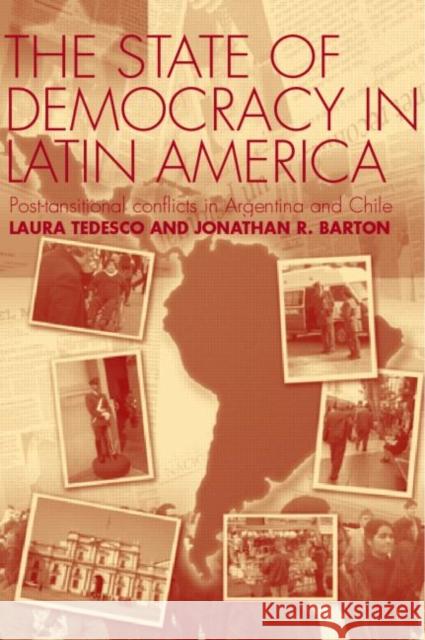The State of Democracy in Latin America : Post-Transitional Conflicts in Argentina and Chile » książka
The State of Democracy in Latin America : Post-Transitional Conflicts in Argentina and Chile
ISBN-13: 9780415348119 / Angielski / Twarda / 2004 / 256 str.
The book presents a critical analysis of the contemporary democratic state in Latin America. Following the repressive years of authoritarianism and the economic hardships of the debt crisis, much hope was vested in the democratic transitions of the 1980s and 1990s. However, democracy has not resolved the inherent problems of the Latin American state. This is due to the fact that the underlying features of the contemporary state remain associated with values, social relations and institutional forms that reflect the interests of elite social groups and are closely linked to bureaucratic authoritarianism, particularly in the Southern Cone countries of the continent: Argentina, Brazil, Chile and Uruguay. In a shift away from the more typical analyses of Latin American political change during the 1990s, this book presents a more state-centric perspective that seeks to explain why transitions to democracy and trends towards better governance have failed to provide more political and social stability in the continent. Through a deeper analysis of underlying social relations and values and how these manifest themselves through institutions, the state is understood not purely as an institu











